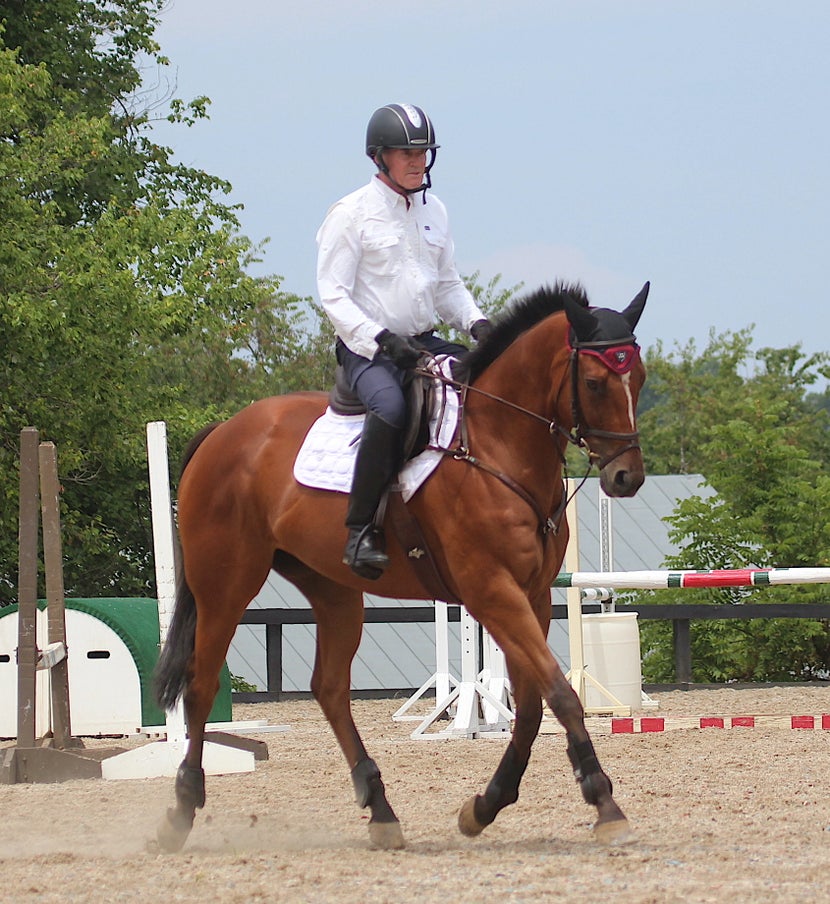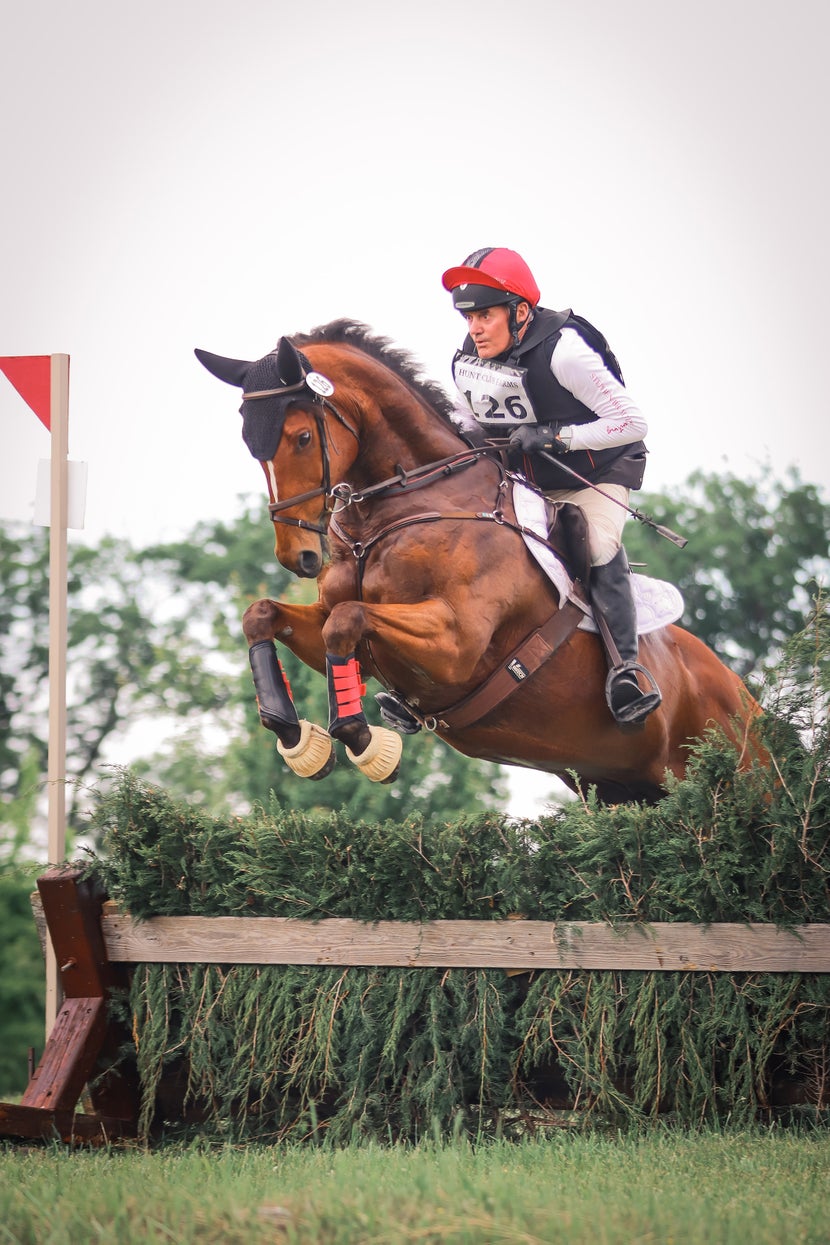Advice on Choosing a Young Event Horse
We understand that choosing your next equine partner can be daunting. Some riders simply do not know where to start, especially if they don't have a lot of experience. Eventing is a demanding sport that requires a horse to be athletically capable in the three areas of dressage, cross country, and show jumping. It is very important to choose the right horse for your performance needs, and that's why we partnered with RW-sponsored rider Stephen Bradley to get his expert insight on what he looks for in a young horse he's considering, specifically for eventing. Having competed and coached at high levels in eventing for many years, Stephen definitely knows what to keep an eye out for in a young prospect!
Selecting a Young Event Horse
Selecting a young event horse is an art, a science, and requires a bit of intuition. I have spent a fair amount of time hunting for the next big eventing star; from the stalls at a racetrack to a high-end breeding facility, talented horses can be found in all sorts of places if you know what to look for! Wherever I am looking, my three key considerations are: Conformation, Balance, and Movement.

Conformation
When I evaluate a young event horse, one of the first things I examine is conformation or the build of the horse. I look for horses with well-proportioned bodies, a strong head, and a broad chest. I tend to prefer horses with necks that rise gracefully out of their shoulders. Ideally, the shoulder should be as high as (if not higher than) the top of the croup behind. I prefer horses that are a bit longer in the back rather than those that are short-coupled. Additionally, I look for horses with angles in their hind limbs, avoiding those with overly straight hocks.
Balance
Balance is crucial in eventing, and I place a premium on a horse's uphill balance. While there have been successful horses with a slightly downhill balance, I lean toward uphill horses because it sets them up to stay healthy long-term in the sport. I watch balance very carefully!
Movement
A young event horse's movement is a significant indicator of its potential. I do not necessarily prioritize fancy, extravagant gaits; in many cases, the gaits will improve with age and strength. Instead, I look for horses with a good walk, where the hind foot strides well in front of the track of the front foot. It is hard to improve the walk, but incredibly easy to ruin it. The walk is so much more important than many people give it credit for! I also value a balanced and rhythmic canter.
Additional Factors to Consider
Age of the Horse
Young horses change quickly! Many racehorses experience physical changes that lead to an improved balance once they begin flatwork and proper training, so it's important to not count them out of the prospect race. The scapula and withers of a horse can grow with the development of muscle, which can make a horse feel and perform more uphill, even if they didn't seem that way at first.
Goals of the Rider
Looking at your own goals can help you figure out the kind of temperament you want in your future horse. A young event horse with a calm and willing temperament is a treasure. I personally look for curious horses who are not rattled in new environments and who enjoy coming into the arena to work. Are you looking for a steady-eddy type who will fall asleep tied to the trailer, no matter where he is? Or do you want a horse who will ask you more questions and be more engaged with his surroundings? Ultimately, age and training can help a nervous young horse become a confident eventer. Similarly, a curious young horse can arguably be easier to develop.
Enjoy the Ride!
The last, and possibly most important, key to looking for your next eventing partner is making sure you enjoy the ride! You should be excited to be in the arena with your horse and build up that partnership. You could have the most correctly built, talented young horse in front of you, but if you aren't enjoying the ride then the horse will not enjoy their job.
Closing Thoughts
We hope this article offered you helpful insight on things to keep in mind when considering a young prospect for eventing. Your event horse goes through a lot of preparation and hard work in order to successfully compete, and it's therefore imperative to choose a horse best suited to what you're personally looking for. Conformation, balance, and movement are all important when searching for that next horse but it does not guarantee success. Will and attitude play a huge role, as acknowledged by Stephen, with regard to the rider's goals. Remember that it is okay to favor a horse with a kinder personality over one with perfect conformation; just know the difference if you plan to step into the show ring!
With Stephen's insight, you can more easily consider what is and isn't important to you in a prospect. Should you have any questions, feel free to contact us at 1-800-620-9145 or info@ridingwarehouse.com. In the meantime, let's finish out with one last word from RW-sponsored rider Stephen Bradley:
"Selecting a young event horse involves a blend of artistry, science, and a deep understanding of the horse's potential for growth. By focusing on conformation, balance, and movement, while also considering a horse's potential for transformation through training, aspiring eventers can narrow down the process of selecting their next star!"
